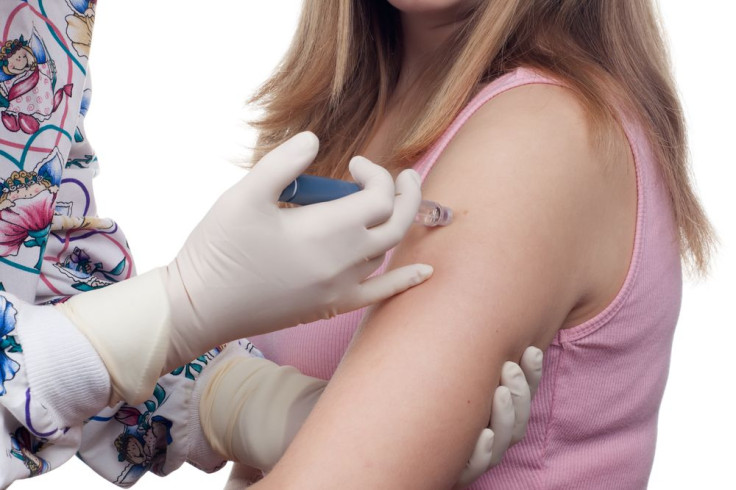STI Vaccination Recommendations Are Being Ignored By Most Tween Boys And Girls

The Centers for Disease Control and Prevention recommends that all boys and girls receive the three-dose human papillomavirus (HPV) vaccination around the age of 11 or 12 so they are protected by the time they become sexually active. This week's Morbidity and Mortality Weekly Report (MMWR) has revealed that an "unacceptably low" number of adolescents in the United States are receiving the HPV vaccine, which also serves as a protective barrier against cervical cancer.
"Today I wish I had good news, but what I need to report is a small increase in HPV vaccinations." Dr. Anne Schuchat, director of the CDC's National Center for Immunization and Respiratory Diseases, told Healthday. "It is a relief that we did not continue to have flat-lining HPV coverage in 2013. You may recall that there was absolutely no improvement from 2011 to 2012. The increase in 2013 we did see was small at the national level. We were disappointed at the overall finding."
Results of the 2013 National Immunization Survey-Teen (NIS-Teen) revealed that only 57.3 percent of girls and 34.6 percent of boys between the ages of 13 and 17 have received one or more of the HPV doses. Although the number of girls who received the HPV vaccine in 2013 was a slight increase from 53.8 percent in 2012, it stills fall well short of the 80 percent vaccination rate goal. The CDC estimates that 91.3 percent of girls around the age of 13 would have received at least one dose of HPV vaccine if they asked for it at the same time they received other recommended vaccines.
According to the CDC, HPV remains the most common sexually transmitted infection and is passed on most often during vaginal and anal sex. Symptoms of HPV tend to show up years after being infected. Approximately 79 million Americans are currently infected with HPV, and around 14 million people become newly infected each year. Experts estimate that most sexually active men and women will be infected by at least one of the 40 types of HPV in their lifetime. Around 21,000 of HPV-related cancer cases could be prevented by receiving the three-dose HPV vaccine.



























